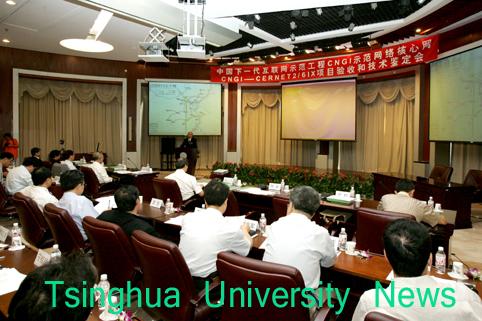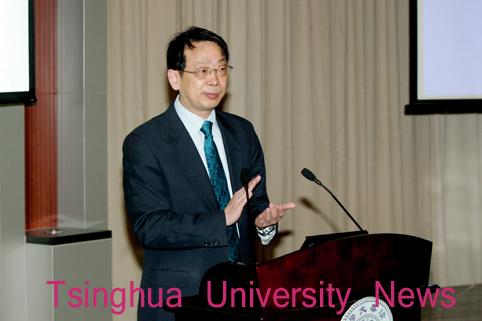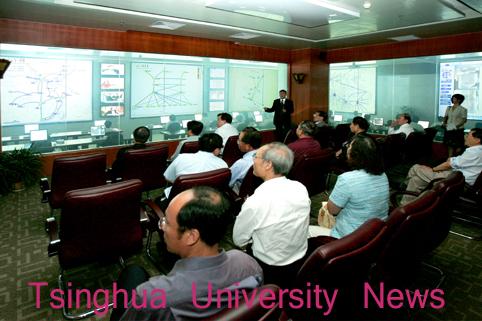Great Progress in China Next-Generation Internet Research
By Li Han
Staff Writer of the Tsinghua News Center

The CNGI-CERNET2/6IX, the key network of China Next Generation Internet (CNGI), passed the examination of an expert team on September 23 at a meeting held in Tsinghua University.
The CNGI-CERNET2/6IX project, developed by Tsinghua and 24 other Chinese universities, is an important component of the key network of China Next Generation Internet, which was co-launched by eight ministers and commissions in China in 2003. In 2004, the CNGI-CERNET2, the first next generation Internet in China was finished.
Entrusted by the National Development and Reform Commission, the meeting was hosted by Wu Hequan, Vice President of the Chinese Academy of Engineering. The expert team was composed of nine academicians including Wang Chengwei and Wu Hequan, as well as some well-known experts in the field. Representatives from the National Development and Reform Commission, Ministry of Science and Technology, Ministry of Information Industry, Information Office of the State Council, Ministry of Education, Chinese Academy of Sciences, Chinese Academy of Engineering, National Natural Science Foundation, and Peking University, attended the meeting.
Professor Chen Xi, Chairman of Tsinghua University Council, addressed the meeting on behalf of the university.

According to the experts, the network reached a world-leading level and has made several outstanding achievements:
Different from the current used Internet Protocol Version 4 (IPv4), the complete of the first IPv6 in the world will regulate the internet information traffic in a different way. It quickens the transition from the current Internet to the next generation Internet. China also achieved innovations in creating a new transitional scheme between IPv4 and IPv6.

The network offers more safety and easier management and in developing China Next Generation Internet, the IPv6 routers are used in China s national backbone network for the first time.

With transmitting speeds ranging from 2.5G to 10G bps, the CNGI's backbone network supported the IPv6 contract and connected 25 core nodes distributed in 20 cities across the country.
(Photo by Guo Haijun)
(http://news.tsinghua.edu.cn)
[update:2006-09-25]
[read:2462]





